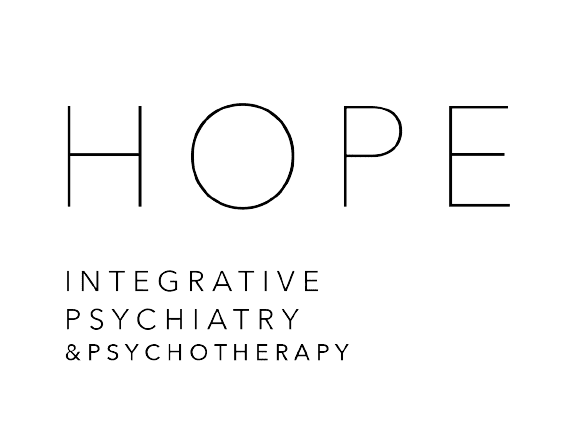Holistic Mental Health Intervention
In a world where quick fixes and instant solutions dominate, the field of psychiatry is undergoing a profound transformation. Traditional psychiatric practices have often relied heavily on medication to alleviate symptoms of mental health disorders.
While medication can undoubtedly provide relief, it often comes with a host of side effects that can impact an individual’s overall well-being. Holistic psychiatry offers an opportunity to explore the potential to reduce reliance on medication and its associated side effects through holistic mental health intervention.
Understanding Integrative Psychiatry:
Integrative psychiatry is a forward-thinking approach that combines conventional psychiatric treatments with complementary and alternative therapies. Its central tenet is to treat individuals as a whole, addressing not only the symptoms but also the underlying factors contributing to mental health challenges.
This comprehensive holistic mental health intervention approach draws from a diverse range of therapies, including mindfulness practices, nutrition, exercise, psychotherapy, and more. By embracing the concept that mental health is interconnected with physical, emotional, and spiritual well-being, integrative psychiatry aims to offer a more personalized and effective treatment paradigm.
Reducing Medication Reliance:
Medications have long been the cornerstone of psychiatric treatment, providing swift relief from symptoms such as anxiety, depression, and psychosis. However, their efficacy can be compromised by side effects ranging from weight gain and sexual dysfunction to cognitive blunting and dependency.
Integrative psychiatry offers an alternative by combining pharmaceutical treatments with complementary interventions. For instance, instead of relying solely on antidepressants, a treatment plan might include cognitive behavioral therapy, mindfulness meditation, and nutritional support.
By addressing multiple dimensions of an individual’s health, integrative psychiatry strives to minimize the need for high doses of medication, potentially leading to reduced reliance and lower risk of associated side effects.
The Role of Holistic Mental Health Intervention
Holistic mental health intervention lies at the heart of integrative psychiatry, recognizing that mental health is intertwined with various facets of one’s life. Let’s explore some key holistic approaches that contribute to the potential of integrative psychiatry:
- Mindfulness and Meditation: These practices cultivate awareness and promote emotional regulation, which are vital for managing stress, anxiety, and mood disorders. By learning to be present in the moment, individuals can develop healthier coping mechanisms and reduce the need for medication.
- Nutritional Support: Emerging research highlights the significant impact of diet on mental health. Certain nutrients, such as omega-3 fatty acids and B vitamins, play a crucial role in brain function. Integrating dietary adjustments and nutritional supplements can complement traditional treatments and enhance overall well-being.
- Physical Activity: Regular exercise has been shown to release endorphins, which are natural mood lifters. Physical activity can be an essential component of integrative psychiatry, contributing to improved mental health and potentially reducing the reliance on medication.
- Psychotherapy: Integrative psychiatry incorporates various psychotherapeutic modalities, such as cognitive behavioral therapy, dialectical behavior therapy, attachment therapy, existential therapy, and/or narrative therapy. These therapeutic approaches help individuals gain insight into their thoughts and behaviors, offering tools to manage symptoms without solely relying on medication.
Personalization and Patient-Centered Care
One of the defining features of integrative psychiatry is its emphasis on personalized care. Each individual’s experience of mental health is unique, and integrative psychiatry recognizes this diversity. By tailoring treatment plans to the specific needs and preferences of the patient, clinicians can create a more meaningful and effective healing journey. This approach fosters a collaborative relationship between the patient and the healthcare team, empowering individuals to take an active role in their mental well-being.
The Road Ahead:
As the field of psychiatry continues to evolve, the potential of integrative psychiatry to reduce medication reliance and its associated side effects holds great promise. By integrating holistic interventions into treatment plans, clinicians can address the complex interplay of physical, emotional, and spiritual factors that contribute to mental health challenges.
While medication will likely remain a valuable tool in psychiatric care, embracing a more comprehensive and personalized approach has the potential to enhance treatment outcomes and improve the overall quality of life for individuals seeking support.
In conclusion, integrative psychiatry represents a paradigm shift in mental health care, offering an alternative to the overreliance on medication. Holistic mental health intervention, rooted in mindfulness, nutrition, exercise, and psychotherapy, forms the foundation of this approach, aiming to address the root causes of mental health challenges.
By focusing on personalization and patient-centered care, integrative psychiatry invites individuals to embark on a transformative journey toward enhanced well-being, reduced medication dependence, and a brighter future for mental health treatment.

